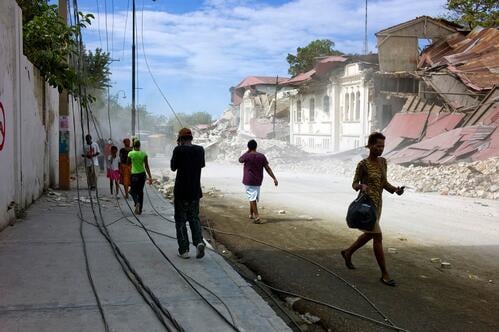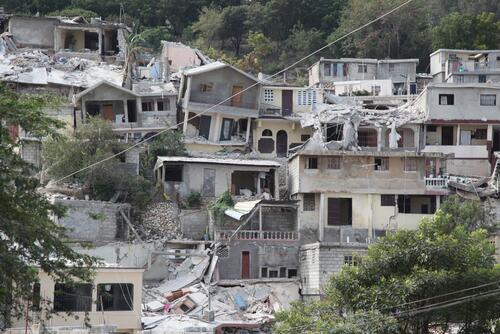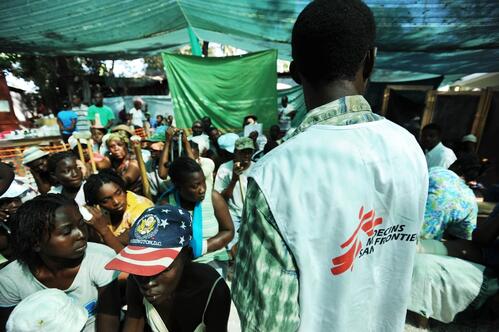A critical review of MSF humanitarian aid operations.
Haitians faced the adversities of life on a daily basis even before a devastating earthquake struck on January 12, 2010. As a major medical and humanitarian organization that’s been present in Haiti since 1991, MSF saw firsthand how Haiti’s people are exposed to life-threatening suffering and neglect.
At the time of the earthquake, MSF, which had been operating three hospitals in Port-au-Prince, responded as quickly and comprehensively as possible to the medical and humanitarian needs of the victims of the disaster.
Within weeks, hundreds of thousands of individuals around the world generously donated to MSF. Donors would eventually pledge more than €104 million ($138 million), making possible the largest emergency operation ever undertaken by MSF.
This report intends to share with the general public, the people of Haiti, and our supporters a detailed breakdown of how the funds donated to MSF for the earthquake emergency relief effort have been used to meet the needs of the Haitian people in the year since the earthquake hit. It attempts to outline the choices made by MSF in deploying its operations, the challenges we faced, the lessons we learned, and our plans and perspectives for the future.
Conclusions
MSF wishes to acknowledge the suffering of the Haitian people, who have endured so much during and after the earthquake. However, much of the affected Haitian population continues to live in very precarious circumstances. With the continued support of our donors and staff, MSF remains committed to addressing the needs in Haiti to the best of our ability in the coming years.
The earthquake in Haiti was an unprecedented disaster for the Haitian people and created enormous medical and non-medical needs. The aid response has been unable to fully meet these needs; throughout the year the assistance provided, whether for shelter, clean drinking water or cholera treatment, was not enough.
There is much about the international aid system that can be improved, and MSF also recognises that there are areas in which we ourselves can improve in terms of deploying our own resources, especially regarding shelter and preparing for mass casualities, as well as in voicing our concerns and engaging with others to improve the aid response.
With the ongoing generous support of our donors and commitment of our staff, MSF is dedicated to using our experience in Haiti to prepare our actions in future emergencies.
Over the past year, MSF attempted to meet the most critical medical needs in Haiti. As in every context, we had to make choices on how we could best employ our expertise and resources, keeping in mind other critical needs and emergencies elsewhere in the world in 2010.
In the first phase, this was through trauma surgery and other emergency medical activities, along with shelter and water and sanitation activities. In the second phase, this was through post-operative, mental health, and primary and secondary health care services. When cholera broke out in October, we reoriented our activities to respond as robustly as possible to treat those affected, while keeping up our other programs as well.
In 2011, we will focus on running six hospitals and supporting two Ministry of Health hospitals. Unfortunately, more than one million people remain homeless in Haiti today. The shelter and water and sanitation services still do not meet the needs of the people and continue to create the conditions for future outbreaks of disease. Cholera is now expected to remain in the country for years to come. MSF will continue its response to cholera and stay vigilant in the face of other emergencies that unfold in the year ahead.






